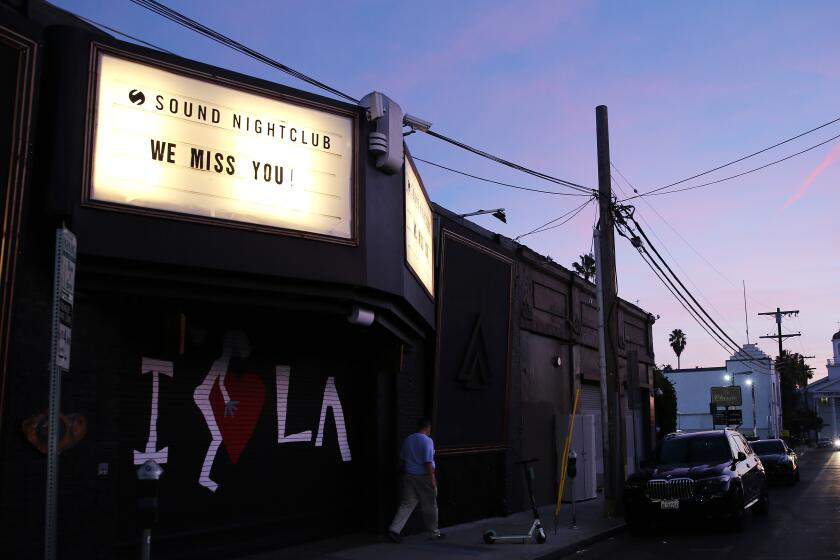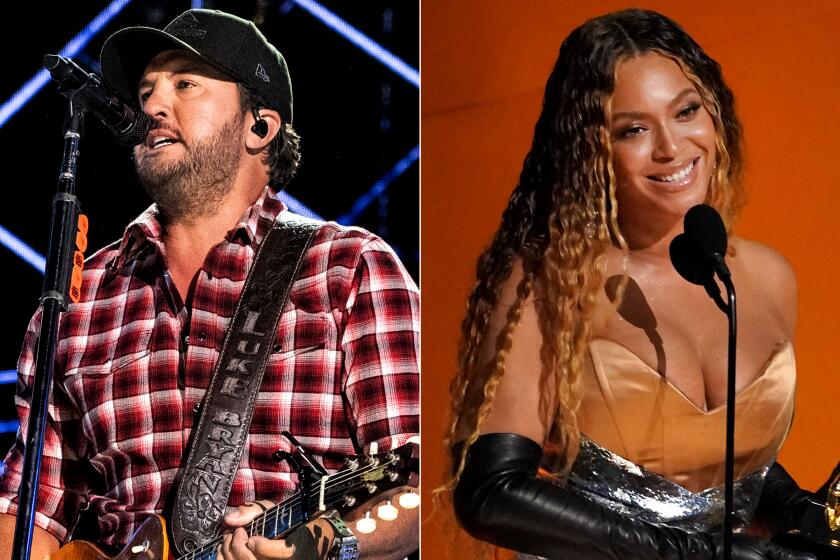Charley Pride: 10 essential songs
Charley Pride liked to let his accomplishments, and his music, speak the loudest. But he knew what was being said when others spoke, like the Nashville publicist who once told him “You look like them, but you sound like us.”
A son of a Mississippi sharecropper, a Negro League pitcher who could hit, he broke through as a modern country music hero. Pride, who died on Saturday at 86 from COVID-19 complications, amassed 21 No. 1 country chart hits and was inducted into the Country Music Hall of Fame in 2000. “I am a traditionalist,” he said throughout his career. It’s interesting today not just how he willed that to be so in a culture inclined to exclude him from so many traditions, but also how many musical traditions he brought together during his career.
What follows are 10 essential recordings from Charley Pride:
“There’s My Baby (Walkin’ the Stroll)” (1958)

His earliest recording, cut at Sun Studios in Memphis, gets over as a simple late-night blues. Elvis was in the air, but here’s an unknown man, his acoustic guitar and his slow-walking feet on the pavement, a broken heart echoing in the rockabilly night.
“The Snakes Crawl at Night” (1965)

He was working as a zinc smelter in Helena, Mont., when Red Sovine heard him sing and urged Pride to get to Nashville. This, his RCA debut, written by Mel Tillis and produced by Cowboy Jack Clement, made for a hell of an introduction: a chilling honky-tonk hit about a man waiting in the shadows for his wife and her lover. “I did not plan to give them any warning, for the devil on my shoulder had command.”
It was the worst year for live music in... well, ever. The Times spoke with two dozen musicians and live-music pros to assess the damage done by the pandemic.
“Just Between You and Me” (1966)

“Snakes” got him to Chet Atkins, and the master of the Nashville Sound knew how to layer his strings and steel guitar alongside Pride’s room-filling baritone. This masterpiece of barroom existentialism cuts gloom with just enough hope to keep the quarters pumping into the jukebox. Hedging their bets, RCA didn’t start sending out his promo shots until after this landed on the charts.
“All I Have to Offer You (Is Me)” (1969)

Great first of all because of the winning humility he shares on this song by Dallas Frazier and Doodle Owens, a tremble in his voice making clear what he can and can’t afford to offer to his love. Further noteworthy because this was the first time a Black performer had topped the country music charts since Louis Jordan did it in 1944.
“Is Anybody Goin’ to San Antone” (1970)

As the rain falls off his hat, Pride offers a complete illustration of heartbroken misery. The plucky music invites the whole tavern to sing along, and soon the Sir Douglas Quintet, Nancy Sinatra and others were singing Pride’s hit, too.
“Kiss an Angel Good Mornin’” (1971)

His booming voice and the influence of Hank Williams and George Jones drew him to honky-tonk hardness, but few country singers blended hard and soft modes as deftly as Pride, and few times did he blend them more successfully than on the biggest hit of his career. This was also the last song Pride performed in public, in duet with young Black star Jimmie Allen, at November’s CMA Awards.
The new HBO documentary “The Bee Gees: How Can You Mend a Broken Heart” explores the brothers’ unlikely path to disco stardom and the backlash that followed.
“Mississippi Cotton Picking Delta Town” (1974)

Modern country music loves to romanticize the small-town roots it champions, but here was Pride’s expert description of the kind of deprivation country music saved him from: ”Nothing much to see but a starvin’ town,” with children “munchin’ on a dust-covered ice cream cone.” His voice spares unnecessary editorializing; Pride lets the picture tell his tale.
“Someone Loves You Honey” (1978)

“Honey” was a sleek, upwardly mobile ballad the way Pride handled it, and his 20th No. 1 hit on the country charts. But months later a version sung by British-Jamaican singer J.C. Lodge became an international reggae hit. So a year later, Pride responded with “You’re My Jamaica,” a made-in-Britain, calypso-tinged No. 1 country hit that made the world safe for “Islands in the Stream.” While we continue to think about Pride’s place in country music, now, in the age of British director Steve McQueen’s “Small Axe” film cycle, it’s a perfect time to look at Pride in the context of global Black Atlantic culture.
“You’re So Good (When You’re Bad)” (1982)

With electric piano and some synthesized strings, this is a silken lounge-blues the Malaco label, or Charlie Rich, would have killed for.
“Night Games” (1983)

Yes, he was a traditionalist, but by the early ’80s making your peace with disco was an established Nashville tradition. This smooth move — not about baseball — wasn’t just his last No. 1 country hit, it was the last record by a Black act to reach that spot until Darius Rucker’s “Don’t Think I Don’t Think About It” in 2008.
More to Read
The biggest entertainment stories
Get our big stories about Hollywood, film, television, music, arts, culture and more right in your inbox as soon as they publish.
You may occasionally receive promotional content from the Los Angeles Times.










